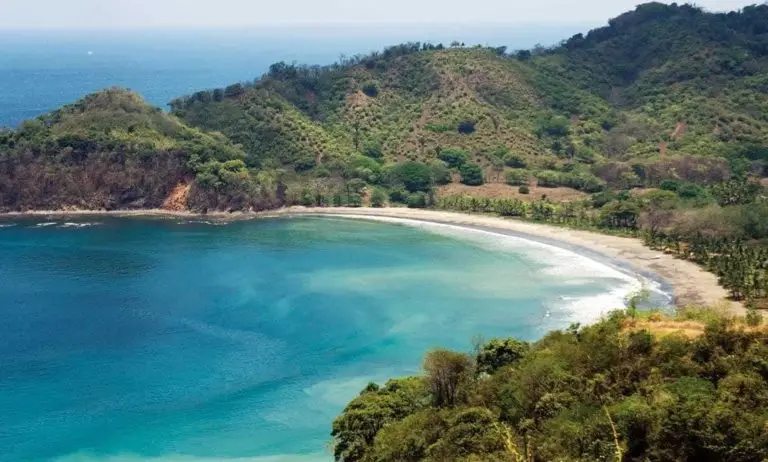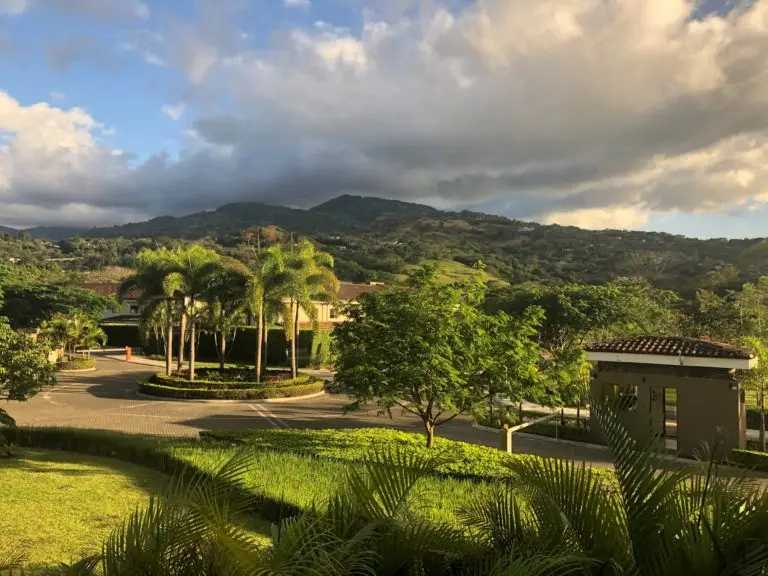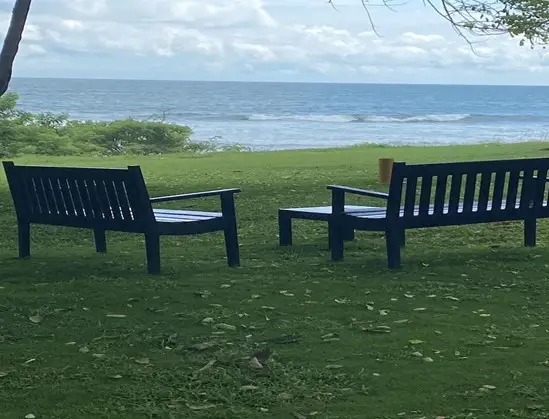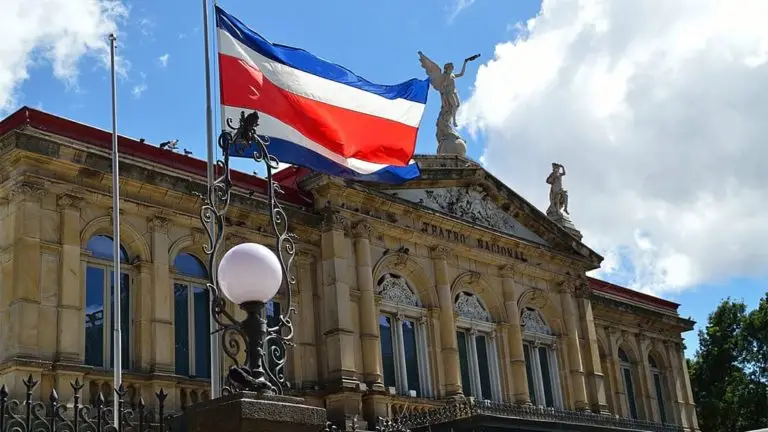
Real Estate Law in Costa Rica ☎️ Property Closings and Registrations.
Real estate law in Costa Rica establishes the rules for property ownership, due diligence, zoning, corporate structure, and legal protections for foreign buyers. Are you looking to purchase real estate in Costa Rica? Choosing the right real estate attorney is essential. We have been assisting clients in real estate law, for more than 25 years. Hire us to ensure legal certainty if you wish to buy property in Costa Rica. Whether you plan to buy land, a house, or an apartment, our legal team at CPG Legal is ready to assist you every step of the way.
Can Foreigners own and buy real estate in Costa Rica?
Absolutely! Understand your property rights as an owner. Once you do, this article explains the legal process to purchase property in Costa Rica. You can invest with confidence.
At CPG Legal, we take pride in helping our clients purchase real estate securely. The process begins with due diligence and escrow coordination.
Once these initial steps are complete, we move on to the closing phase and the formal registration of the title in your name. After registration, the Public Registry of Costa Rica (Registro Público de Costa Rica) will issue your official property title.
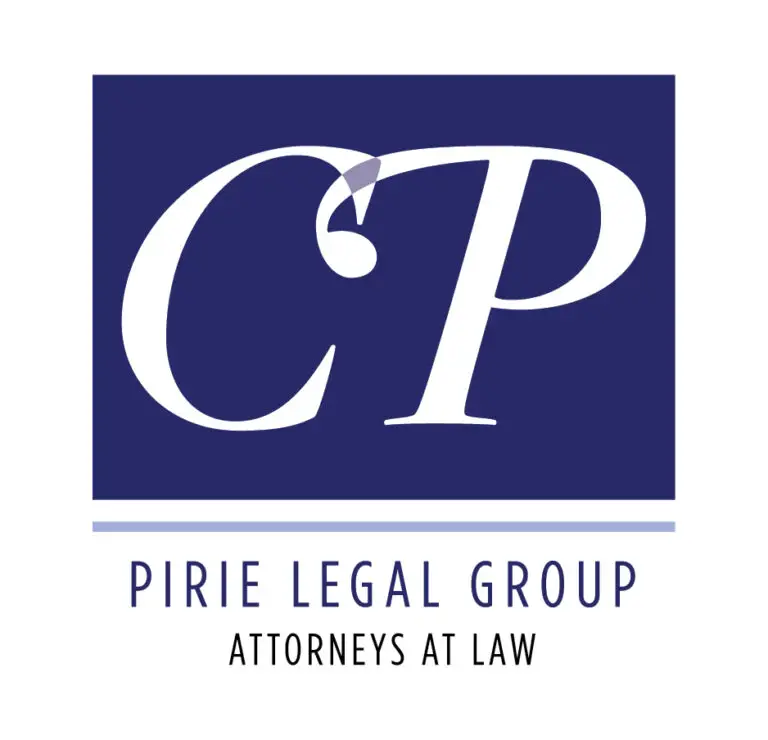
How to purchase real estate in Costa Rica: the first steps.
Understanding real estate law in Costa Rica is essential before purchasing any home, condo, land, or commercial property.
Step 1: Identify the property. Costa Rica offers diverse regions and listings, many with ocean views. Once you find a property, contact us to begin property due diligence.
Step 2: Gather the Folio Real. With the property number, we locate the title at the Public Registry. We verify the cadastral map, boundaries, and area. We also confirm the legal owner and check mortgages, liens, and encumbrances. In addition, we review zoning, taxes, utilities, and corporate status when applicable. These due diligence checks ensure that your purchase complies with Costa Rican law.
What do the digits in my property number mean?
In Costa Rica, each property is identified with a unique number called the Folio Real. The first digit of this number corresponds to the province where the property is located. Costa Rica has seven provinces: San José, Alajuela, Cartago, Heredia, Guanacaste, Puntarenas, and Limón. Following this provincial digit, the rest of the Folio Real includes a series of numbers that uniquely identify the property.
The last three digits—often “000”—indicate ownership structure. For example, a “000” ending typically means the property is owned by a single person. Other endings like “001,” “002,” or “003” usually reflect shared ownership or a tenancy in common. At CPG Legal, we handle all aspects of this legal analysis to ensure your real estate purchase in Costa Rica is clear and secure.
What other relevant information does the "Registro Público" show?
With the land title number, our law firm can check all legal details. The Costa Rican Public Registry shows who owns the property. You should learn the types of property ownership in Costa Rica.
It may be in the name of a person, a corporation, or a trust. The Registry also shows the land size, boundaries, and cadastral plan number. Most importantly, we verify if there are any mortgages, liens, or legal issues. These are key steps when purchasing property in Costa Rica.
How to Purchase Property under Real Estate Law in Costa Rica:
Real estate law in Costa Rica regulates title registration, property ownership, zoning rules, corporate holding structures, and the legal obligations of all parties involved in a real estate transaction. Understanding these rules is essential before investing.
The steps below outline the legal process to purchase property in Costa Rica, from due diligence and escrow to final registration. These are the essential actions our attorneys take to protect your investment and ensure full legal compliance throughout the transaction. Many foreign clients contact us before they buy real estate in Costa Rica to ensure that their future property is legally secure and free of hidden risks
- We conduct due diligence (property zoning, taxes, liens, utilities, and corporate status).
- We coordinate escrow, the funds remain on hold until closing.
- If needed, we prepare an option to purchase after due diligence approval.
- Our attorneys draft the notarized purchase deed (escritura de traspaso).
- Both parties sign the deed before the notary public.
- The notary public files the deed at the National Registry.
- We track the filing and confirm registration.
- We deliver your title and advice on post-closing steps.
What documents are usually signed to buy real estate in Costa Rica?
When buying property in Costa Rica, the purchase agreement is the key legal document. It formalizes the transaction and outlines the terms. It must be signed as a notarized public deed and filed with the Public Registry. Filing ensures an enforceable ownership and is legally required. At CPG Legal, we draft and review all types of real estate contracts in Costa Rica. We make sure your rights are fully protected throughout the purchase process. In addition to the main real estate agreement, other legal documents may also be required. Let’s review all of them:
1. Letter of Intent (LOI):
In some cases—especially when realtors are involved—a Letter of Intent (LOI) is signed to outline the offer terms. While usually not legally binding, the LOI helps ensure both buyer and seller are aligned. It often serves as the starting point for drafting the formal real estate agreement.
2. Due Diligence:
As soon as you find a real estate property you like, you should hire us to perform due diligence on it. This is the first and most important step when buying property in Costa Rica. A proper due diligence report must comply with real estate law in Costa Rica, including verification of title, survey plans, boundaries, municipal permits, and potential legal risks.
We have covered this topic in detail in our property due diligence section, which we highly recommend reading if you’re serious about investing in Costa Rica.
3. Option to Purchase Real Estate Agreement:
An Option to Purchase Agreement is a pre-contract that gives the buyer exclusive rights to buy property within a specific timeframe. In return, the buyer usually pays a non-refundable deposit—often a percentage of the purchase price. This agreement takes the property off the market while the buyer completes due diligence, secures financing, or plans development.
It’s a useful tool if you need time to confirm the property’s legal status or viability. However, there is risk involved. If not handled correctly, you may lose your deposit. In many cases, it may be better to skip the option agreement and go straight to closing. A clause can be included stating that if the buyer decides not to purchase, or if the deadline expires, the money must be returned. In fact, unless it is expressly stated that the deposit is non-refundable, there is a legal obligation to return the funds. This is a subtle point under civil law.
4. The Real Estate Purchase Agreement. Closing Stage:
This is it — the main contract of the property transaction. Once both parties are ready to close, the real estate purchase agreement must be drafted and signed.
A real estate purchase agreement in Costa Rica is executed in a public deed known as an escritura de traspaso. This notarized deed includes essential information about both parties, such as names, identification numbers, and domiciles.
The agreement also includes key terms and conditions of the property transaction in Costa Rica. This covers the property’s cadastral and registry information, the purchase price, payment terms, and any other legal conditions required by law.
The contract is usually signed after completing due diligence. As commercial real estate attorneys and notaries, we draft, review, and notarize these agreements to protect your interests and ensure legal security.
All land purchases in Costa Rica must be completed through a public deed. This requires the services of a licensed Notary Public.
5. Public Registry & Title Registration After You Buy Real Estate in Costa Rica:
In Costa Rica, only a notary public, who must also be a licensed attorney, is legally authorized to draft and execute the Title Transfer Deed (escritura de traspaso) for a real estate transaction. This notarized deed is signed by both the buyer and the seller in the notary’s official protocol book. Once signed, the notary prepares a certified copy and files it with the National Registry (Registro Nacional) to formally register the property in the buyer’s name. If the transaction is conducted using an escrow service, the notary must also coordinate the closing with the escrow agent to ensure the purchase funds are released only after proper execution of the deed.
At CPG Legal, we not only ensure that all legal and tax obligations are met during the closing, but we also verify that the registration appears correctly in the National Registry. We provide our clients with a title certificate confirming that the property is officially recorded in their name, ensuring full ownership rights and protection against title fraud.
Why Hire a Real Estate Attorney for your Purchase in Costa Rica?
1. Conflict of Interest and independence.
The seller’s attorney represents the seller. Similarly, the realtor’s in-house lawyer protects the closing for the agency. Therefore, you need an independent attorney who defends your interests and stops the deal if risks appear.
2. Impartial Due Diligence
An independent lawyer verifies title, confirms boundaries, and checks for property easements and encumbrances. If the seller’s team runs due diligence, they may minimize red flags. Consequently, independence matters when you purchase real estate in Costa Rica. Buying real estate in Costa Rica requires a careful legal review of the title, the survey plan, zoning rules, and municipal or environmental restrictions.
3. You Control the Notary Public
In Costa Rica, only a notary public can draft and file the deed. If the seller chooses the notary, you lose control over the wording and filing. Instead, we draft, file, and prove registration.
4. Escrow and Contract Review
We coordinate escrow, prevent premature releases, and ensure that taxes and fees are paid. We draft or review the LOI, Option to Purchase, and Purchase Agreement with protective clauses for buyers. When foreign clients purchase real estate in Costa Rica, escrow protects their funds. Although escrow is not mandatory, it plays an important role within real estate law in Costa Rica to protect both the buyer and the seller.
5. Fraud Prevention and Post-Closing Support:
We detect identity risks, confirm seller authority, and reject altered documents. After closing, we track registration, deliver your title certificate, and set up alerts. Learn about title fraud.
6. Peace of Mind
Buying property abroad involves risk. Hiring your own property lawyer and notary:
Gives you legal certainty
Protects your investment
Avoids future litigation or loss of title
If you need guidance on real estate law in Costa Rica, our bilingual attorneys at CPG Legal provide complete legal support throughout the entire transaction.
FAQS About Property Purchases in Costa Rica
Can Americans and other foreigners buy property in Costa Rica?
Yes — absolutely. Foreigners, including Americans and other non-residents, enjoy the same property ownership rights as Costa Rican citizens. This means you can legally buy, sell, mortgage, or transfer real estate under your personal name, with full legal protection. The only restriction foreigners face is the right to vote — not to own property.
Costa Rica’s Constitution guarantees the right to private property, making it a secure and attractive jurisdiction for real estate investment. Whether you’re considering land, a house, or a condominium, you can own real estate in Costa Rica without needing residency. Investing in Costa Rican property is not only legal — it’s a sound financial decision when guided by proper legal counsel.
When purchasing real estate as a foreigner, it is essential to work with an attorney who understands the legal, financial, and technical aspects of Costa Rican property law.
Can foreigners create a corporation to purchase real estate in Costa Rica?
Yes, our real estate law firm, can create a corporation for you, to own the property investment. You can either have us open a Limited Liability Corporation or LLC, or a Standard Corporation. There are, however, some setbacks. Every year, the corporation must pay a corporate tax, just to be able to exist. After three years of payment defaults, the company will be automatically dissolved.
You must also inform the Central Bank of the final beneficiaries of the corporation. It´s important to know, that the corporation requires a shareholder´s assembly, in which the corporation grants the authorization to sell, per governance regulations. There are benefits to all of this. So, should foreigners and Americans own property in Costa Rica through corporations?
How much are real estate transfer costs and taxes?
Purchasing property in Costa Rica involves land transfer costs and notary fees. Property transfer tax is 1.5% of the sales price or the fiscal value, whichever is higher.
If the declared purchase price is lower than the fiscal value, the fiscal value will be used for the calculation. Conversely, if the sales price is higher, that amount becomes the base for the tax.
The notary public pays this transfer tax directly to the Public Registry after closing. However, this is not the only expense related to registration. In addition, the buyer must cover registration costs and mandatory stamps.
These include National Registry stamps, agrarian and fiscal stamps, and several smaller administrative fees. Together, these payments amount to approximately 2.5% of the property’s value, combining transfer taxes and stamps.
Finally, buyers must also pay legal fees, which are calculated according to the property value and the Costa Rican Bar tariff.
How can you make sure the property purchase is registered properly?
This is another reason why you should hire us for your land transactions. We are a team of honest and law-abiding commercial real estate attorneys and notary publics who genuinely care for our clients. Over the past 20 years, I have seen many cases.
I have even litigated against negligent notaries chosen by buyers who failed to register the property. Therefore, it is crucial to make sure that your property is properly registered. By hiring us, you will receive an official certification from the Public Registry confirming that you are the new landowner. We will also give you the Registry’s receipt of legal documents once filed.
As a result, you can rest assured that your investment will be fully registered and protected. When you buy real estate in Costa Rica, the notary public files the purchase deed at the Public Registry (Registro Público de Costa Rica).
Once we file it, we obtain a receipt showing that the document was officially submitted. This receipt allows us to track the registration process step by step. After the property appears in your name, you can verify ownership directly in the Public Registry using your property number (folio real).
In addition, we guide you through this verification process so that you can confirm that your real estate investment is secure and correctly registered.
Should I hire a realtor to buy a home in Costa Rica?
By default, you will probably find a realtor through the real estate listings on the internet. These real estate listings, can point to many homes for sale in Costa Rica, and to beautiful lots, or acres of land. There are several steps you can take, to check that your realtor is legitimate. The National Association of Realtors, is always a good place to start. Realtors can also help you rent a home in Costa Rica.
My real estate agent asked me to sign a letter of intent (LOI). What is this?
The LOI or letter of intent, is a document usually drafted by your real estate agent. It’s more of an outline for the future real estate transaction. This document is helpful because it relays initial information regarding the buyer, seller, and the property for sale. American brokerage firms in Costa Rica use them a lot to initiate negotiations.
Should I sign an option-to-purchase real estate agreement?
An option to purchase agreement is a pre-contract and paves the way for the future sale. Through this contract, the potential purchaser promises to buy the real estate property. This promise is usually backed by an earnest money deposit, which is given to the landowner. In return, the landowner saves the property as is, to be bought by the potential buyer, in a determined time frame.
Under no circumstance do I recommend you sign an option to purchase agreement if due diligence has not been finalized on the property. If you pay earnest money first, you may regret it if the property has issues. The real estate transaction must be done following the appropriate steps. If the landowner wants you to sign an option to purchase agreement, our real estate law firm will gladly revise it, or even draft one. But only after we have finalized due diligence and given the OK to continue with the property purchase.
Is an escrow service a good idea to purchase real estate in Costa Rica?
Once we conclude due diligence, then we can begin working on setting up the financial aspect of the real estate transaction. Things can be more manageable if you already have a Costa Rican bank account. However, remember that as a buyer, you must show the bank the origin of the funds. Escrow is always a good idea if you don´t have a Costa Rican bank account open. If you have your money overseas, then I highly recommend using escrow for the closing. As a real estate attorney in Costa Rica, I have been involved in countless real estate closings with escrow agents. Escrow is a good way to ensure your property investment transaction is done securely, and it is an essential step on how to buy a house in Costa Rica.
I can recommend a few distinguished escrow companies for a secure real estate transaction. The escrow agent holds the purchase money in Escrow until the notarized purchase agreement is signed. When it is, the funds will be released to the seller, and the real estate transaction will be concluded. According to these guidelines, property transfers will be done smoothly, whether you are the seller or the buyer.
Are there any legal requirements for foreigners to purchase land in Costa Rica?
No. The only legal requirement for buying homes for sale in Costa Rica is to have their identification documents up to date. In this case, your valid passport will suffice for identification purposes. A minor detail is an affidavit, usually inserted into the notarized sale, in which you indicate the origin of the money you are using to purchase the property. You don´t even have to be a resident to be able to purchase property, and you can even establish a corporation to own your investment. Condominiums in Costa Rica are also great investment options for expats and foreigners.
Can I buy real estate in Costa Rica with a power of attorney?
You sure can. A power of attorney can be used to buy or sell real estate property in Costa Rica. You should know, that in order to do so, the power of attorney must be notarized in a public scripture as well. So, if you are not in Costa Rica and don’t want to travel down here, you don’t have to worry. We can open a corporation for you. You will be appointed as manager if you wish an LLC, or president of the board of directors if you want a stock corporation (sociedad anónima). Through an assembly of shareholders, you will grant power of attorney to a firm member, limited to sign the purchase in the corporation’s name only. This is a way to purchase a property or home for sale in Costa Rica, without having to fly down here.
Once the real estate property title is registered to my name, what else should I do?
As a Costa Rica real estate attorney, I always ensure my clients know their property rights as landowners. You should also be aware that property title theft is a global issue. Costa Rica is not immune to it. After the asset is in your name, there are several things you can do to prevent it. You should click on the following link to learn how to prevent real estate fraud and what to do if this happens to you.
What about land transfer taxes?
As I stated previously, it’s customary for the buyer to pay for all real estate transfer costs. So if you sell property in Costa Rica, you won´t have to worry about this. However, you will be responsible for paying the “Capital Gains Tax”, but this is another matter. If you have a real estate agent, you will need to pay his realtor commission. It´s customary for the seller, to pay for the realtor´s commission. Once you become the real estate owner, you should learn about several property taxes that must be paid.
What expenses and taxes must I be aware of if I buy real estate in Costa Rica?
When the public scripture (escritura de traspaso) is signed, you must pay for several things. First come the notary public fees. These are the legal fees he charges you, for his services. You must also pay the corresponding property transfer taxes and the Registry Stamps. All these things must be paid to have the property you bought duly registered to your name. Sadly, there have been instances where unscrupulous notary publics do not register the properties. This is why the choice of a notary is essential. This is why as a buyer, you must always choose the notary public when you buy properties in Costa Rica.
What about beachfront or Maritime Zone properties?
Properties located within 200 meters of the high-tide line fall under Costa Rica’s Maritime Zone Law, which has special rules regarding ownership and concessions. If you’re considering beachfront property, read our full guide on maritime zone regulations and how to safely purchase concession land.
How can I avoid problems if I purchase estate in Costa Rica?
By hiring us. Property transactions are a process that entails due diligence, escrow coordination, correct notarized services, and proper registration. You should always hire the right Costa Rica real estate attorney to register the land transaction correctly. The notary public you choose is essential to acquire the real estate property for sale that you wish, and get a secure property title as a landowner.
Can you summarize the steps to follow to buy land in Costa Rica?
- We perform Due Diligence on the property: This is the initial step. Click here to learn about due diligence in Costa Rica.
- We coordinate with a reputable escrow agent, and an escrow account is opened.
- Money is transferred to the escrow account by the buyer.
- Purchase closing. We set up a date to sign the notarized purchase agreement.
- The escrow agent will transfer the money held in escrow, to the seller or to other parties that were designated as recipients in the escrow contract.
- Know the closing costs. Taxes, fees and Registry costs must be paid through escrow, to the notary public.
- As the designated notary publics, we will register the property in the buyer’s name at the Public Registry.
- Be aware of the yearly real estate taxes in Costa Rica, once you become a property owner.
- Be aware of property theft and your property owner rights.
Real Estate Closings Across Costa Rica:
At CPG Legal, we assist clients with property purchases and real estate transactions throughout Costa Rica. Our attorneys and notaries provide due diligence, escrow coordination, and property closings in every province.
Explore our regional guides to learn how to buy land and real estate safely in each area of the country:
- Real Estate in Guanacaste – Legal guidance for property purchases in Tamarindo, Nosara, Flamingo, and Papagayo.
- Real Estate in East San José – Urban and suburban property transactions in Escazú, Santa Ana, and Lindora.
- Real Estate in West San José – Property closings for San Pedro, Curridabat, and Pinares.
- Real Estate in Heredia – Safe land acquisitions and residential closings in Belén, Santo Domingo, and San Rafael.
- Real Estate in Cartago – Mountain and rural property investments in Paraíso and Orosi.
- Real Estate in Alajuela – Home and land purchases in Grecia, Atenas, and La Fortuna.
- Real Estate in Puntarenas – Beachfront and coastal properties in Jacó, Manuel Antonio, Dominical and Uvita.
- Real Estate in Limón – Caribbean land purchases and property closings in Puerto Viejo and Cahuita.
Each regional page provides practical information about buying property, registering titles, and protecting investments in Costa Rica. Be sure to click on the followin link to check out our legal services page.
Dr. Christopher Pirie Gil.
